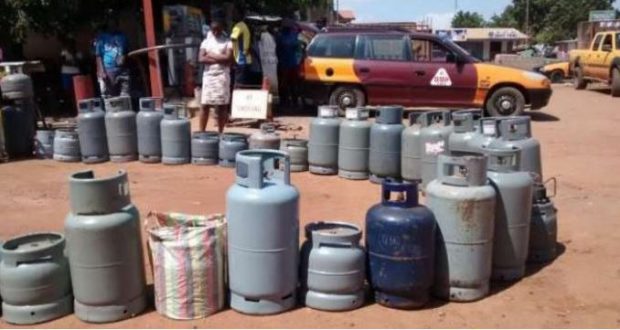
Cylinder re-circulation: High Court dismisses injunction against NPA
The Human Rights Division of the High Court has dismissed an application for interim injunction against the implementation of the Cylinder Recirculation Model (CRM) policy.
Advertisement
But the court in its ruling stated that the applicants had failed to prove the rights that they claimed were being violated through the implementation of the CRM policy.
It said the applicants had also failed to produce their licences from the NPA.
Read also: 18 Companies apply to set up LPG bottling plants
According to the presiding judge, the records before the court indicated that the CRM Policy had been slated for implementation in 2019 and, for that reason, no breach had occurred under the NPA Act as claimed by the applicants.
The court held that the applicants were also on record to have admitted the CRM policy was intended to protect the public from future LPG accidents.
From the foregoing, the court held the view that applicants’ fear towards the implementation of the policy was based on financial considerations.
It said in the event that the applicants’ case succeeded in the substantive matter, they could be adequately compensated, whereas the NPA, who was acting under public safety consideration, would not be compensated.
Arguments
Earlier, counsel for the applicants,
He submitted that the applicants were seeking to protect their interests embedded in the licenses granted them by the NPA under the NPA Act.
Mr Atuguba further contended that the implementation of the CRM policy by the NPA will indirectly revoke, and in some instances limit, the scope of those licenses.
He argued that the NPA could not use a policy to amend the NPA Act and in the event that happened it would be in breach of Article 23 of the 1992 Constitution.
He further argued that the applicants would suffer irreparable damage that could not be adequately compensated, should the court fail to uphold the application for interim injunction.
Related: LPG operators declare strike over cylinder re-circulation
NPA
In response, lead counsel for the NPA, Mr Ace Anan Ankomah, opposed the application and submitted that the applicants failed to demonstrate that the rights that they were seeking to protect
He said they had also failed to exhibit any licenses
Counsel submitted that the applicants were not licensed by the NPA to engage in the retail of LPG and for that reason, their argument that implementation of the CRM policy would revoke their licenses, was not based on a true and proper interpretation of the NPA Act.
Mr Ankomah reiterated that the applicants will continue to operate as contractors of LPG Marketers and would continue to engage in the retail of LPG products.
He said NPA was exercising a statutory duty conferred upon it, and that if the injunction application was granted, the NPA would be prohibited from engaging in any stakeholder consultations to fashion out the CRM Policy and will, thus, bring its statutory functions to a halt.
He informed the court that while the CRM policy was grounded on the need to enhance public safety in LPG operations, the sole interest of the applicants in filing this application was
Suit
In the substantive suit, the applicants are praying the court for a declaration that the CRM policy was inconsistent with the National Petroleum Authority Act, 2005 (Act 691), illegal and inconsistent with Article 23 of the 1992 Constitution of Ghana.
Writer’s email: [email protected]



